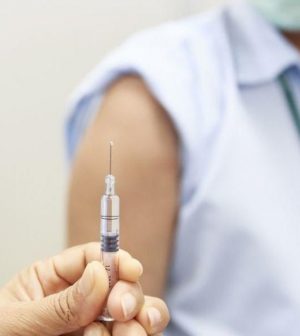- 10 Strategies to Overcome Insomnia
- Could Artificial Sweeteners Be Aging the Brain Faster?
- Techniques for Soothing Your Nervous System
- Does the Water in Your House Smell Funny? Here’s Why
- Can a Daily Dose of Apple Cider Vinegar Actually Aid Weight Loss?
- 6 Health Beverages That Can Actually Spike Your Blood Sugar
- Treatment Options for Social Anxiety Disorder
- Understanding the Connection Between Anxiety and Depression
- How Daily Prunes Can Influence Cholesterol and Inflammation
- When to Take B12 for Better Absorption and Energy
CDC Expert Panel to Weigh In on Vaccine Boosters

An advisory panel to the U.S. Centers for Disease Control and Prevention will meet on Wednesday to discuss which Americans, if any, should get Pfizer booster shots to rev up their immunity to COVID-19.
Their recommendation will follow a decision by a U.S. Food and Drug Administration expert panel to only give booster shots to those over 65 and those in high-risk groups.
The CDC panel will deliberate which high-risk groups should get a booster shot. The decision could come as late as Thursday, The New York Times reported.
The Biden administration had said that it planned to start offering booster shots to most vaccinated adults this week, pending approval from federal agencies.
Scientists from Pfizer and the Israeli Ministry of Health presented data to the FDA panel on Friday showing that immunity given by the vaccine fades over time, but a third shot boosts immunity and could have the same effect in the United States.
But one critical difference is that the two countries have had different experiences with the vaccine: In Israel, anyone with an accelerated respiratory rate and an oxygen level of below 94% is considered severely ill. However, the CDC defines that category as people who are sick enough to be hospitalized, said Dr. Sara Oliver, a CDC scientist who presented the American data, the Times reported.
Some committee members said they also did not feel comfortable offering booster shots to young people who may not need them, when the risks of a third dose are unknown. The vaccines have been tied to rare cases of heart inflammation in younger people. Still, the risk is small and research has shown that COVID-19 is much more likely to cause the condition.
In the end, the FDA panel concluded the two-shot regimen was sufficient for most people in preventing severe illness and hospitalization.
“It’s unclear that everyone needs to be boosted, other than a subset of the population that clearly would be at high risk for serious disease,” Dr. Michael Kurilla, a committee member and an official at the U.S. National Institutes of Health, told the Times.
More information
Visit the U.S. Centers for Disease Control and Prevention for more on COVID vaccines.
SOURCE: The New York Times
Source: HealthDay
Copyright © 2026 HealthDay. All rights reserved.










